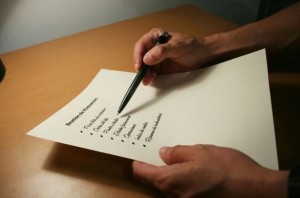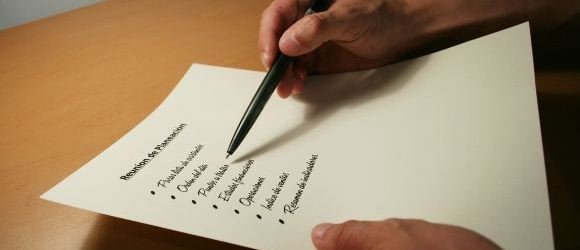The Grammar of Copyright

Welcome ASCAP Subscribers! Hope you enjoy the site and feel free to let me know if you have any questions.
If there’s one thing that I’ve never aimed to be, it’s a “grammar nazi”. Though I’ve been an avid writer for over 15 years and have worked very hard to make my writing as accurate as possible, both in terms of grammar and content, I know well that I am human and have made more than a few mistakes over the years.
That being said, when it comes to the word “copyright”, grammar can be a funny thing. I’ve seen smart, capable writers mess up the grammar and spelling of that word and use it in ways that they never intended.
This can be especially embarrassing when trying to make points or state beliefs about copyright. One of the most sure-fire ways to ensure that others fail to take your views seriously on the subject is to not know how to spell it or use it in a sentence.
So, with that in mind, here is a brief guide on how the grammar and spelling of the word copyright so you can avoid many of the pitfalls that others stumble into.
How to Spell Copyright
Spelling copyright is fairly straightforward. As seen throughout this article, it is spelled copyright, as in the right to copy.
Copyright, especially when dealing with text, is often misspelled as “copywrite”.
While copywriting is definitely a real thing. it has to do with writing for some intention, such as promoting a business, point of view, etc. Most freelance writers are, in some capacity, copywriters but there is no such thing as a “copywrite” (save for the rapper).
In short, any use of the word “copywrite” in a sentence is going to be invalid and should be avoided.
The Grammar of Copyright
Copyright is a fairly unusual word in many respects.
First, it can be a noun, referring to copyright law itself, an adjective, such as “copyright enforcement”, or can be a verb, such as “to copyright a work”.
All three can be correct but the noun usage is the most common. The verb usage is usually rare, but it typically refers to anyone who is securing a copyright registration from the U.S. Copyright Office. This is because all works are protected by copyright upon creation, without any additional action.
Also unusual about this word is that the past tense of the word. If you say a work is “copyrighted” that means is currently protected by copyright law, not that it is in the public domain.
This can cause some confusion as one who has “walked across the room” or “opened the door” is no longer doing those actions. However, a copyrighted work is still copyright-protected. In this regard, it’s more like “entrusted” or “protected” in that it represents an ongoing act that began in the past.
Also, if a work is eligible for copyright, then it is “copyrightable”. However, the antonym of that word is up for at least some debate. Many choose the word “uncopyrightable” and it is a broadly-accepted word choice that, according to some sites, either is or ties for the longest word in the English language that doesn’t repeat a letter.
However, most courts simply use “not copyrightable” when describing works that don’t qualify for copyright protection, such as with the Feist decision.
Finally, “copyrightability” is the noun to the adjective “copyrightable”. If you raise the question about the copyrightability of a work, you are asking if the work is copyrightable or not.
Bottom Line
All in all, copyright is not that difficult of a word to grasp from a grammar standpoint. The biggest problem people have with it is that it can represent such a variety of things from the law itself, to the act of getting a copyright registration, etc.
That being said, many of the “grammar” mistakes that stem from writing about copyright are actually misunderstandings about the law itself. For example, people routinely stay that others are trying to “copyright” an invention, a business name, etc.
Those mistakes can easily be avoided by getting a more robust understanding of what copyright law is and , but something few seem to do.
In short, the grammar of copyright can be tricky, but it isn’t nearly as tricky as the law itself. Which is why it is important to research your topics thoroughly before you say something that discredits all of your hard work and thoughts.
Want to Reuse or Republish this Content?
If you want to feature this article in your site, classroom or elsewhere, just let us know! We usually grant permission within 24 hours.
